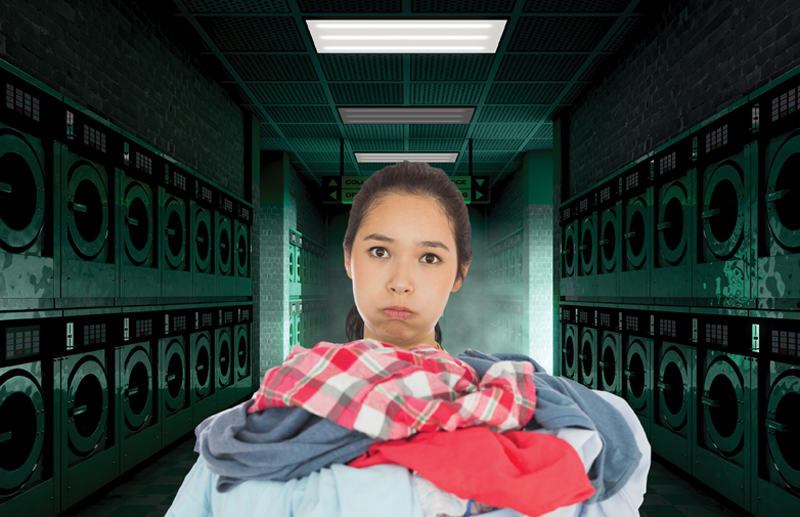Look for Small Annoyances That May Be Bugging Your Customers and Silently Destroying Your Laundromat’s Otherwise Pleasant Atmosphere
Believe it or not, you may be inadvertently annoying your laundromat customers without even knowing it. And, honestly, very few of them will complain to you because – from a customer standpoint – most of these annoyances are too small or maybe a bit embarrassing to mention.
Picture yourself in a busy laundromat waiting area. All of the machines are in use…
The woman on your left is noisily eating something that smells terrible. The overhead television is tuned to a vapid celebrity gossip show at what seems like full volume. And the man to your right is loudly talking into his cell phone, while the person next to him is suffering from a never-ending sneezing attack.
Unless you’re unconscious or a saint, at least a couple of things in the scenario above are likely to really bug you. We all know an annoyance when we experience it.
However, from a scientific standpoint, what is it that makes something annoying? Are some things universally annoying, while others are just specifically annoying to particular individuals? And does research offer any advice for preventing life’s annoyances from virtually making our heads explode?
In fact, annoyance just may be the most widely experienced – and least studied – of all the human emotions.
So, just what makes something annoying? Research has proven that the activity must possess three qualities to be classified as “annoying.”
First of all, it must be noxious without being physically harmful. A good example of this are flies buzzing around inside a laundromat – the insects are unpleasant, but they won’t kill you. If a store has no air conditioning and, thus, constantly leaves its doors open for some circulation during the warmer months, this can enable flies to enter the facility at will.
Secondly, an annoyance must be intermittent or unpredictable. The loud squeal of a machine bearing on its last legs may be annoying at first, but over time that feeling of annoyance will cease as customers become used to it. Psychologists call this “habituation,” which is the development of a gradual tolerance for a stimulus. Yet, when an unpleasant noise comes and goes, it becomes annoying each time it shows up.
The intermittent nature of annoyances makes them difficult (if not impossible) to anticipate and, in turn, prepare for. For instance, if you know that you’re going to be stuck in traffic, you might be able to take it in stride and use a different route. But, when the slowdown is completely unexpected, it gives you no time to adjust your mindset or re-route your trip.
Lastly, something must persist for an uncertain period of time to be called annoying. Not being able to secure a washer or dryer for 45 minutes is a bother, but it’s tolerable. However, when there’s no end in sight to the equipment backup, the situation becomes excruciatingly annoying to your customers.
Given that, if you understand this phenomenon and attempt to prevent it from occurring, you likely will have more satisfied customers.
On a scientific level, an intriguing aspect about annoyances is how they appear to change over time. For example, a decade ago, research led psychologists to conclude that one of the biggest annoyances in the world was listening to someone else’s overly loud cellphone conversation.
Back then, phone conversations seemed annoying to those not on the phone. These days, it appears to be the call recipients who are getting annoyed. And I’m not even talking about receiving an intrusive spam call; I’m referring to receiving an unexpected call from a friend. The prevailing opinion seems to be, “Why call when a text will do?”
All this to say, as a laundromat owner, it’s important to pay close attention to what exactly seems to be annoying your customers that you probably will never hear about – and then to make every attempt to prevent these annoyances from occurring?
It’s just another way to refine your customer experience and to provide the most pleasant environment possible.












